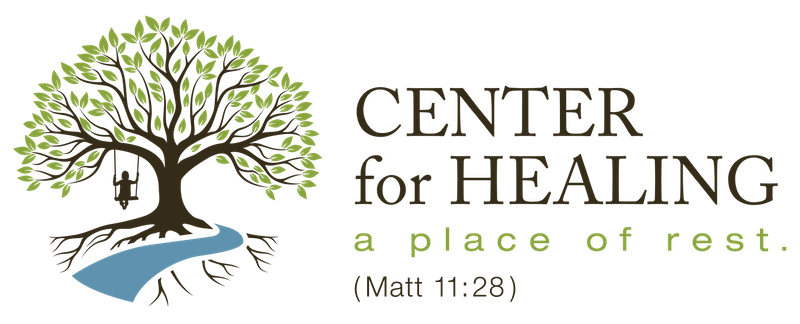
Have you ever found yourself saying or doing something erratic in response to a friend or your spouse and later asking yourself: “Where in the world did that behavior come from!?” If so, I have an important clinical diagnosis for you - you are… a normal human being!
It is healthy to hope for your marriage, your friendships, and your family to build upon and confirm the best qualities that are in you. After all, your unique virtues, your capacity for love and sacrifice (and of course, your good looks) are certainly things that attracted your partner to you in the first place, and you love to leverage them as often as you can to uplift and support your spouse, help your friends, and make your family proud.
But have you noticed that your parent or your partner also (or perhaps, especially) brings out the worst that is inside you? Sometimes even just being around the ones you love the most can bring out your short temper, resentment, pride, pettiness, impatience, and a host of other nasty qualities you wish you could just keep in the box, or better aim only at the people in your life you don’t like that much anyway. It is frustrating and embarrassing that these behaviors keep coming out at the absolute worst times in response to, or directed towards, the people you are closest to. Maybe something is wrong with your marriage? Maybe your friends don’t really like you that much after all? Maybe something is wrong with you? Maybe you are just spending too much time with the in-laws?
The truth is, however, that it is both normal and healthy to experience the “random” appearance of your character flaws in your marriage in response to your spouse’s behavior. And although your reactions might seem “random” or “from nowhere” in the context of the moment or the relationship, the reality is that these experiences are both common and healthy because true intimacy includes both closeness and conflict. As we draw near to another in love, we will always experience the pain of encountering the “rough edges” we would prefer didn’t exist in ourselves and other people. This is what it means to be vulnerable.
High Risk, High Reward
Vulnerability is a risk. And that risk—of being seen, of being misunderstood, of being hurt—is exactly why love can be both beautiful and deeply triggering. It's worth asking: is the intimacy we crave in relationships worth the pain and the imperfections that this closeness reveals? I believe it is—because close relationships don’t just trigger old wounds; they also give us the space to heal them.
I’ve often heard this cliché: “God puts people in our lives who expose our weaknesses.” This saying is certainly relatable, but it can also be misleading and dangerous if it does not direct us to a solution. The adage seems to suggest that there’s something uniquely “fated” about the way a particular loved one triggers our bad behavior. It’s almost as if we are shrugging our shoulders: “People never change. I’m always going to frustrate you whenever I do this, and you will always drive me up a wall whenever you say that, and it’s just God’s little joke on us. Better tough it out and move on.”
But that response is not the whole truth. Anytime you allow yourself to become deeply close to someone— exchanging commitment, establishing safety, and building trust - your defenses naturally come down. And when our walls come down even a little, the character traits that hide just behind these defenses are revealed. As it turns out, these are rarely our “best” or “favorite” qualities. Let’s be honest, if we were really proud of our judgmental thoughts, the way we overeat, or our tendency to procrastinate, we wouldn’t have to constantly remind ourselves smile at others, decide in advance to only take two trips to the buffet line, or make excuses for our tardiness to that meeting. Whether we realize it or not, we are always working overtime to maintain some distance between our behavior to others and the vices and wounds inside our hearts.
Love is the Difference
This is why love has the power to change us for the better. Love in relationships creates emotional safety, and when we feel safe, that is often when the deepest fears, past hurts, and unmet needs bubble up to the surface. It is not the relationship that causes us harm— in fact, it is the relationship that is creating enough safety for your nervous system to relax and finally show you what’s in there! That is why our spouse, a close family member, or a dear friend seems to have a special power to frustrate us and elicit childish responses from us that we never have towards our bank teller or barista. We don’t hear back from our tax preparer for two weeks and we don’t think anything about it, but when our partner doesn’t immediately text us back about the brand of sour cream we requested, it sets off a spiral of panic in our hearts. Perhaps he has not responded these three minutes in order to deliberately hurt you. Or maybe (and more likely) a hiccup in your pattern of communication with your husband touches an old and tender wound—maybe from childhood, maybe from a previous relationship, or maybe from somewhere you haven’t thought about in years.
Fear of abandonment. Shutting down. Becoming clingy. Getting angry over “small” things. These aren’t character flaws—they’re clues. They’re the smoke that tells you there’s a fire somewhere that wants your attention.
Just because your close relationship is bringing out the worst in you, it does not necessarily mean this relationship is unhealthy. Your closest relationships are also the most faithful and true mirrors of your soul. I love this expression: “If you spot it, you got it.” When something in another person really gets under your skin, it’s often because it’s reflecting something unhealed in you—whether that’s a trait you dislike in yourself, or a reminder of someone who once hurt you. The discomfort isn’t necessarily a warning sign. Sometimes, it’s an invitation to look deeper.
Here’s the thing: love doesn’t just feel good—it creates the good. If done properly and as God intended it changes us. It can soften us. It can help us heal parts of ourselves that we didn’t even know needed tending. Intimacy can be one of the most powerful tools for healing. Learning to stay present, communicate vulnerably, and grow together is worth the risk and worth the discomfort. Real love will not make us happy all the time, but it will bring us into true intimacy with God and with others, and that is the whole point!
So the next time you feel triggered in a relationship, try to take a moment and ask yourself—what’s God inviting me into so that I can heal right now?
Peace,
Cody Hummer, LMSW



